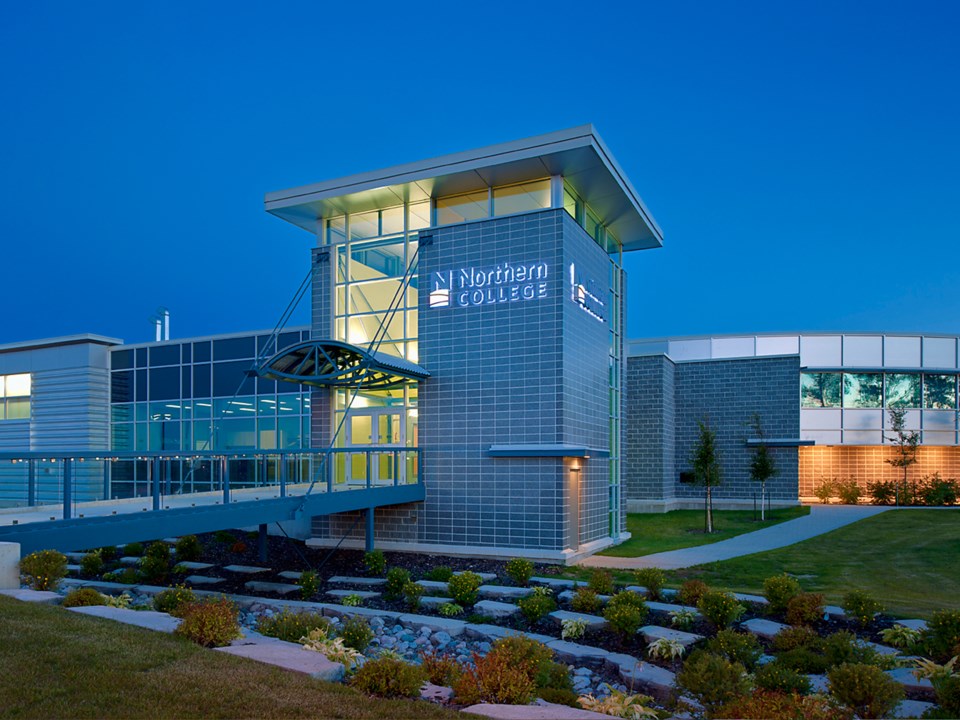Northern College has taken a number of steps to help its students cope with the COVID-19 pandemic.
Back in early April, the college provided a one-time $250 payment to all fulltime domestic and international students. The funds came from the college’s share of the $25-million emergency funding provided to post-secondary institutions by the province.
“We thought the best way to help the students is to use those provincial dollars this way to give direct support," said office registrar Cam McEachern.
“Students, who were here with us, would make good use of that money to help with their rent or groceries or other expenses because many were facing the loss of their part-time jobs or loss of support by some other family member within their living."
He said the college identified three ways it could help its students during the pandemic.
The first one was distributing the $250 payment to all students, with “no questions asked.”
Another way was setting up an emergency relief fund with about $50,000. Both domestic and international students could apply for funding for up to $1,000 to address their needs through the college’s financial aid office.
The college is also going to implement a tuition payment plan to let all students know they can pay off their tuition fees throughout the semester instead of providing the entire payment upfront.
The tuition payment plan, which will come in effect in September, may be of particular interest to foreign students as they pay higher tuition fees and don’t have access to OSAP, McEachern noted.
For the next full academic year, international students will pay $13,177.5, while domestic students will pay $2,720.56.
"The domestic fees are supplemented by provincial grants based largely on the per-student enrolment and partly upon overall college performance," McEachern explained. "The international fees reflect that these enrolments are ‘unfunded’ by the province and support the same learning resources – expert faculty, student advisors, curriculum developers, and other customary college supports and services.
In addition to financial support, the college has advisors available for academic and personal needs. For international students, the college has also hired a new advisor, who’s undergoing official training, to help the students with immigration-related issues, McEachern said.
“Northern College is here for students. We support the economy, we support the community, we support the industry. But we do it by working with students, helping students learn everything they can. During the COVID pandemic that need has not changed,” said Audrey Penner, vice president of academic and student success.
“We’re very proud of what we do, we’re very proud of our students and we have the best faculty in the world to help support us to make this happen.”
Penner said the college is also looking at additional bursaries to help students transition to the Canadian life while keeping in mind that Timmins is one of the communities chosen for a immigration pilot program, which aims to attract and retain skilled workers and fill labour shortages.
“We not only want the students to come and study with us. We want them to stay and become part of the fabric of the north and help build our communities back.”
The recruitment for domestic students is down by about 20 per cent this year, compared to the usual numbers in mid-June from the past years, McEachern said, which can be attributed to students taking time to think about whether they want to study online or take a year off.
As for international students, McEachern said he feels the enrolment will be lower as well but it’s early to predict as it depends on whether the students will be able to come to Canada in summer and/or whether they will be interested in studying virtually.
He said the college will be working with its recruitment team to see if the number can be brought up to an extent by September.
“We want students to do what’s right for them. We’re here if they’re wanting to do their programming, we’re happy to support them. If they choose to come next year, that’s fine, too,” Penner said.
As the college gears up for the upcoming school year, some of the challenges Penner anticipates may include maneuvering through social distancing and ensuring everybody’s safety.
She also said some employers may be hesitant to take students for job training or work-integrated learning due to restrictions on large gatherings and that college staff and faculty may be hesitant to have face-to-face interactions. All those concerns will need to be addressed to ensure everyone’s safety, Penner noted.
“We may see some streamlining in how we deliver courses even after this is over. But that’s still to be developed because we also want to make sure things are taught in a manner that is most beneficial for the students.”



